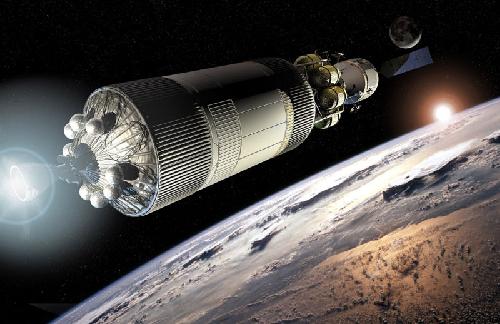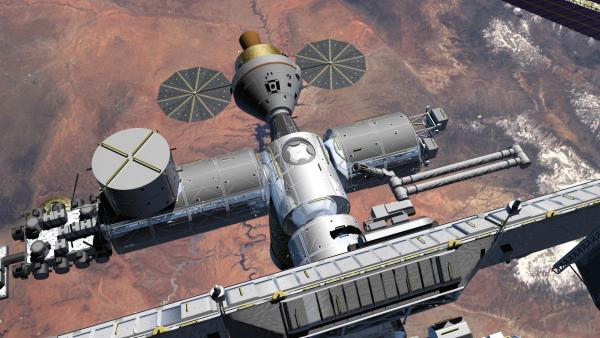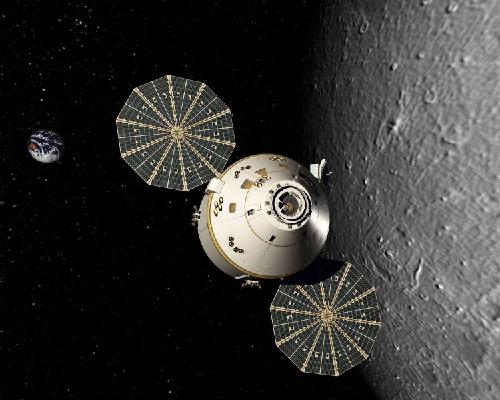| < | Wavepacket Blog only displaying 'science' posts |
> |
| << Newer entries << | |
| 2010 | |
| May | |
| Fri May 21 23:30:08 2010 Space Plan |
|
| Fri May 7 22:44:43 2010 Tree-Hugger Me |
|
| April | |
| Tue Apr 6 22:25:15 2010 Gene Patents |
|
| >> Older entries >> | |
| >> links >> | |
| Fri May 21 23:30:08 2010 Space Plan Now I have even more respect for the new NASA direction. |
|||||||||
| A friend of mine is the Astronomy columnist for the
Seattle Examiner. If you are interested in Astronomy in the Seattle area, you should definitely read
his articles!
He recently posted an article about former NASA administrator Michael Griffin's talk at the Boeing Museum of Flight, in which Griffin wasn't entirely supportive of the new NASA direction. In particular,
Harsh! Griffin called the new direction "Obama's proposals", although most of them came from the so-called Augustine Report, the outcome of the Review of US Human Spaceflight Plans Committee. You can find the Augustine Report here, which is very readable! If you are at all interested in the US space program I recommend flipping through it. It is over 150 pages (ack) but I read through the Introduction (Chapter 1), the coverage of current programs (Chapter 4), and their evaluation of critical technologies (Chapter 7). It is a pretty interesting report! Popular Mechanics has an online article about 5 Surprising Passages from the Full Augustine Report. [If you flip through the report, on page 12 you'll find an awesome diagram showing the International Space Station, color-coded by which country supplied the components. It is clear that the ISS is almost exclusively a US and Russian venture, although Japan kicked ass (far above the European contributions). Although, before I deride Europe too much, I should given them the benefit of the doubt--they may have recognized early on that the ISS was a colossal waste of money.] Michael Griffin also didn't like the Augustine Report "which he feels got some things right but blew many others." Many astronauts also don't like the new direction. Neil Armstrong and Eugene Cernan, the first and last astronauts on the moon, testified to the Senate that
Ouch! However, not all astronauts agree with them. For instance, Russell Schweickart recently wrote that the new direction was a much-needed change. Schweickart noted
And of course, my own blog posts ( No Moon and Moon Shot ) significantly elevated the national debate. Recently The Space Review ran a series on the new direction (see part 1 and part 2 ). The review is somewhat politically-heavy (for instance, worrying that a more efficient NASA will mean less pork to keep congress happy) but basically calls out the main differences of Obama's plan:
Obama's plan is good about separating the many phases of launching people and material into orbit. For instance, both the Shuttle and the Constellation programs have the same problem: they use the same vehicles for people and cargo. This is very expensive, since any manned vehicle has huge overhead for safety! Separating the two (launching people and cargo using different vehicles) is much cheaper and may be more reliable--and safer. Also, Obama's plan puts more funding into private space companies for launches into low earth orbit. This wasn't a viable option ten or twenty years ago, but it is now. And it means that we'll build out our private launch industries, let them spread the risk and try out new technologies, and let NASA focus on other issues such as deep-space propulsion and life support. Much better! So I understand why many people aren't happy about he change in direction. And certainly Michael Griffin is worried about his legacy. But the new NASA direction looks better and better the more I look at it. Comments |
Related: economics > science < Unrelated: books energy environment geopolitics lists mathematics predictions |
||||||||
| Fri May 7 22:44:43 2010 Tree-Hugger Me I'm a die-hard environmentalist in spite of my SUV. |
|||||||||
| Today I celebrated 6 weeks of commuting to and from work without driving!
This is all because I recently moved (see The Dream Tour), and I can bus to work and walk to almost everywhere I need to shop. I've been mostly commuting by public transit since December, but in March my parking pass ran out so I've been commuting 100% car-free since then. My gasoline consumption has dropped by around 50% or more compared to 2009, even though I often drive into the mountains on the weekends. However, I still drive a large black SUV that gets really crappy gas mileage. So I can't really call myself an environmentalist, can I? Well, actually I can and I do. I was inspired by this story, which pointed out that most people think about environmentally-friendly driving entirely wrong. Most people think that we can help the environment by buying cars with better gas mileage. But as the article noted:
So by moving and driving far less, I've actually reduced my carbon footprint much more than had I stayed where I was and bought a Prius. Don't get me wrong, eventually I'll get a greener car. But it won't be a Prius. It will be an SUV that has cleaner emissions. I need a truck with clearance, room for cargo and gear, and four wheel drive. That's another thing many people (including proclaimed environmentalists) get wrong, by the way. When it comes to the environment, gas mileage isn't important: emissions are important. The two are related, but they don't have to be. Car and truck manufacturers could be held to much stricter emissions than they are now. Paradoxically, better catalytic converters could slightly reduce gas mileage, but that would be overall worth it. So what is the responsible, green future for the planet? It won't be suburbia with hybrids. It will be people living much closer to where they work and shop, driving far less, in cars that have about the same gas mileage as now, but with lower emissions. That's going to be a big demographic shift, but it will be better for the atmosphere, and will also be forced by rising gasoline prices. Comments |
Related: economics > science < environment predictions Unrelated: books energy geopolitics lists mathematics |
||||||||
| Tue Apr 6 22:25:15 2010 Gene Patents A surprising verdict that could change everything. |
|||||||||
| What with the
passage of the healthcare bill,
the recent strategic armaments treaty, and
earthquakes, an important story was mostly buried this week. The story, which is
causing an uproar among biologists, is that
the ACLU has just won a lawsuit which
invalidates several gene patents.
This article has a great overview of how the case unfolded.
This is big news. Why? On the one hand, many people are worried that by blocking patents of human genes, companies and institutes will be unwilling to investigate genetically-targeted (or inspired) drugs. For instance, the Northwestern University report quoted above includes a quote from one lawyer:
that is, because patents won't be filed, companies will keep genetic sequences private. However, that same article quotes other practicing scientists as saying
and also notes independently that
[Myriad Genetics was the defendant in the lawsuit, and their BRCA breast cancer test relied in part on patents on the human BRCA1 and BRCA2 genes.] I'm with the scientists on this one. Allowing patents of standard human gene sequences is dumb and contrary to the spirit of patents. It was a mistake to have allowed it in the first place, and the ACLU was right to challenge it. Is this the end of patents for biotech? No. Even the scientists who supported the lawsuit noted that
In short, companies can patent anything they invent that is original, but can't patent Mother Nature. It is early days still! The result will almost certainly be appealed. But I am hoping that higher courts will uphold the verdict. If so, I think we'll see even more genetic information publicly available, which should speed cures and lower costs for everyone. Comments |
Related: economics > science < Unrelated: books energy environment geopolitics lists mathematics predictions |
||||||||
| Links: |  |
Blog Directory | Blog Blog | Technorati Profile | Strange Attractor |




